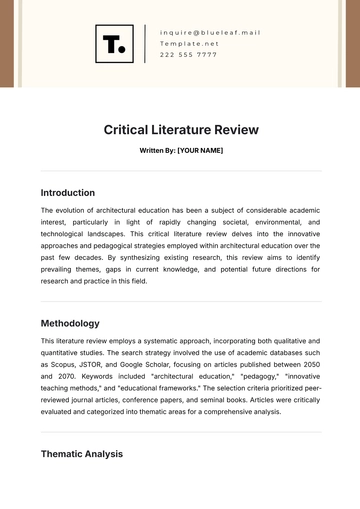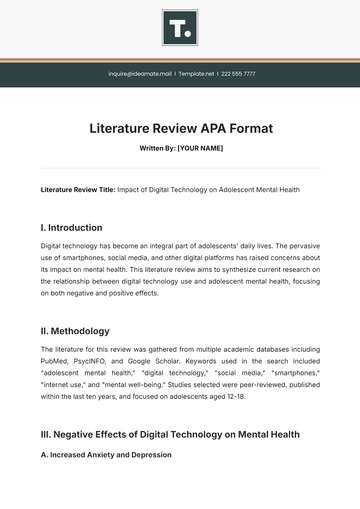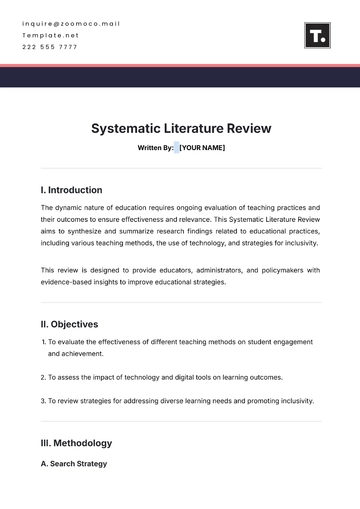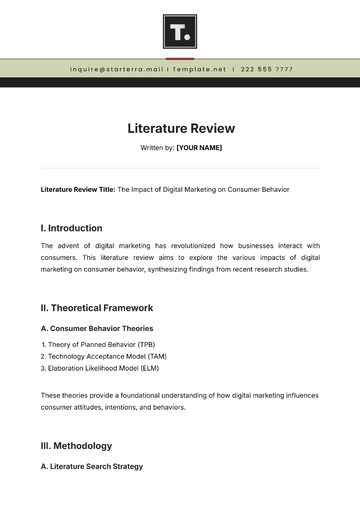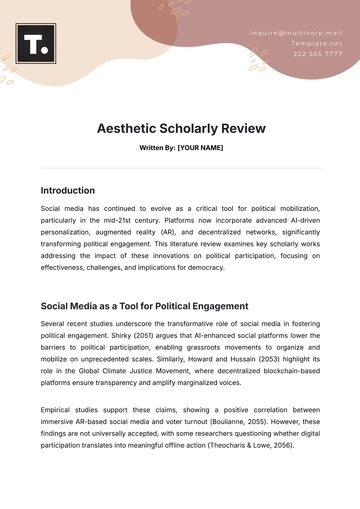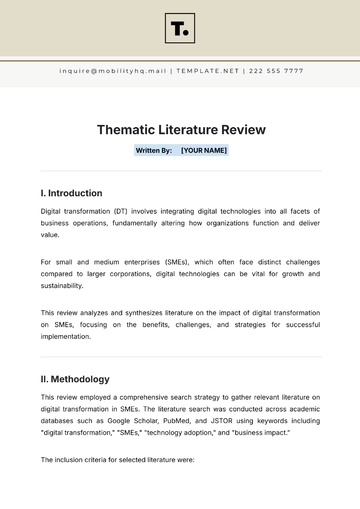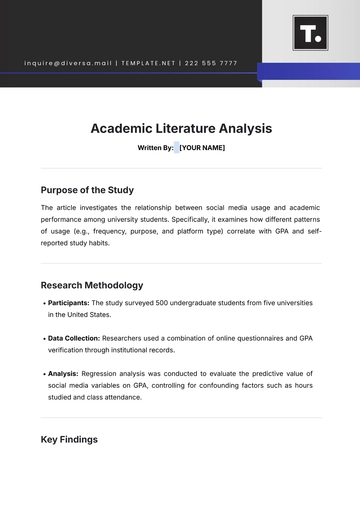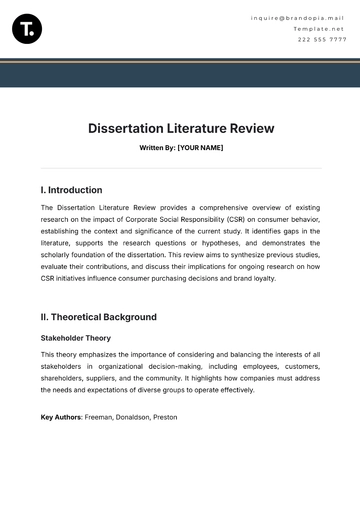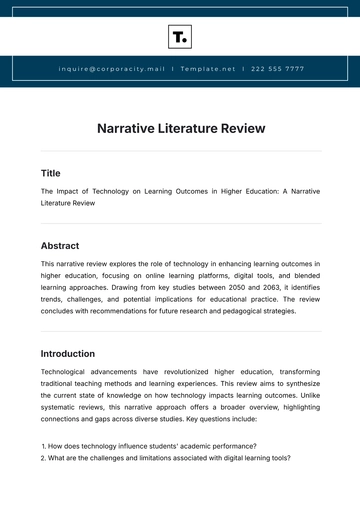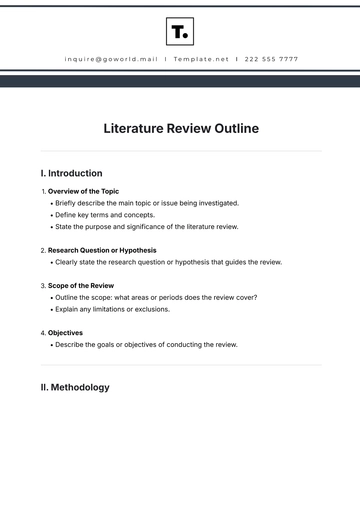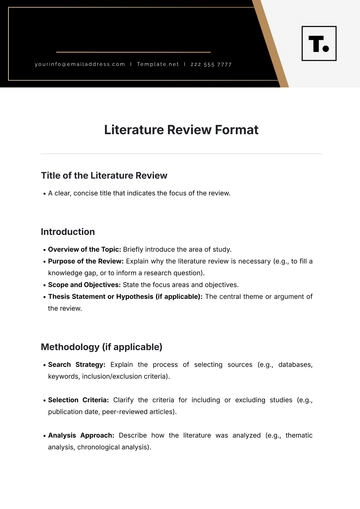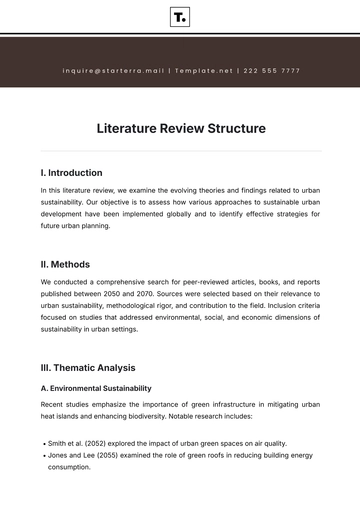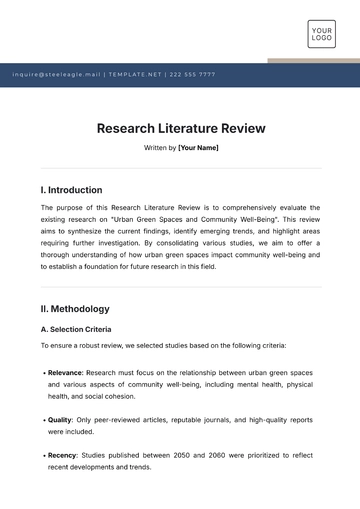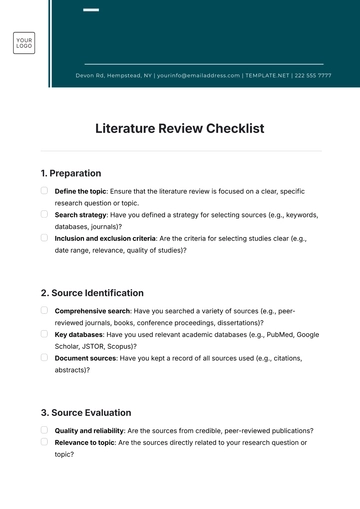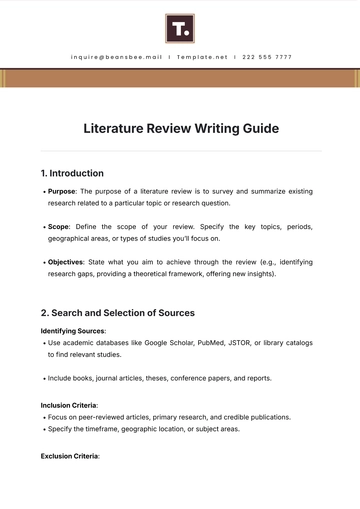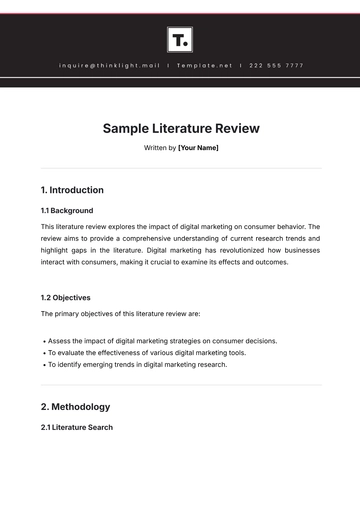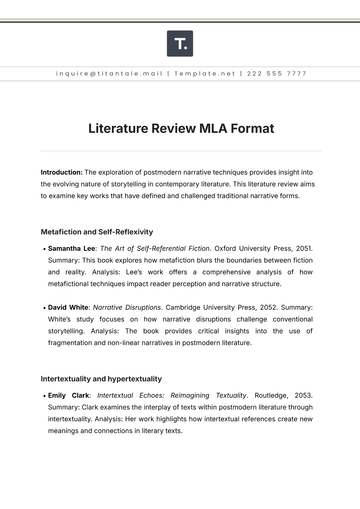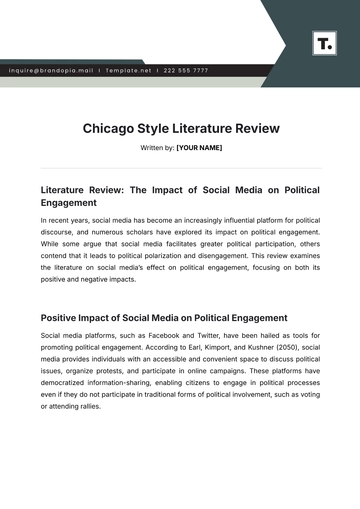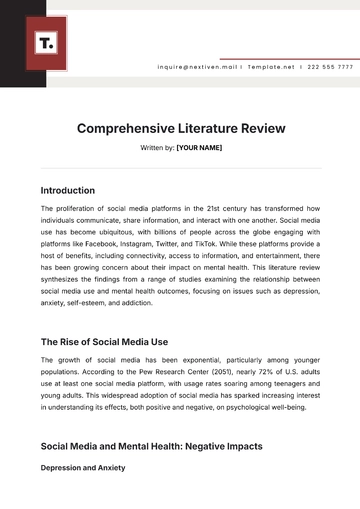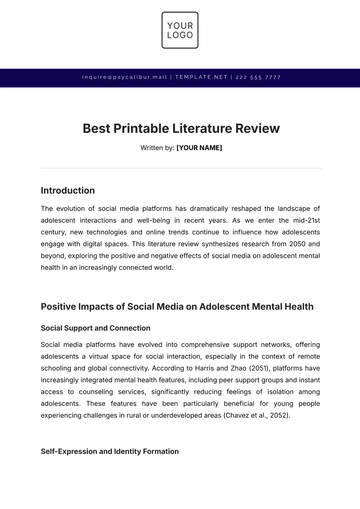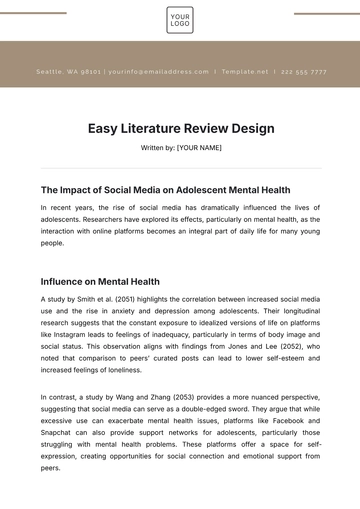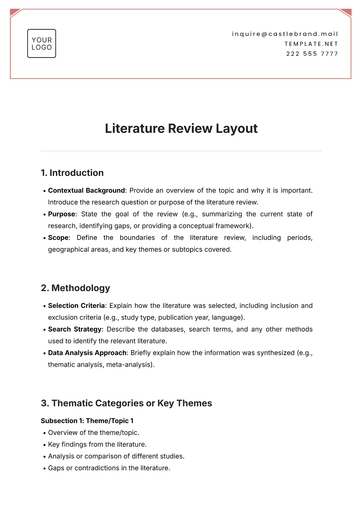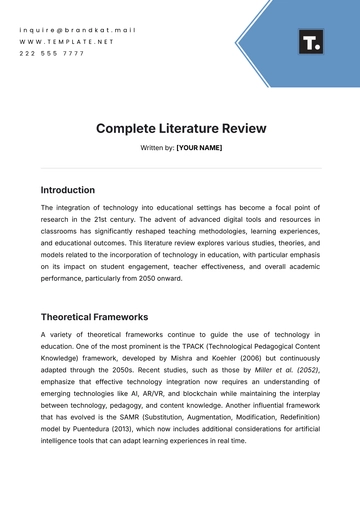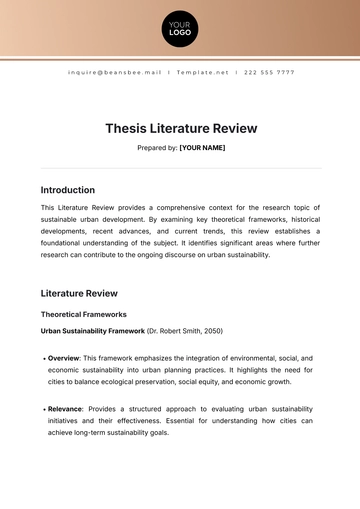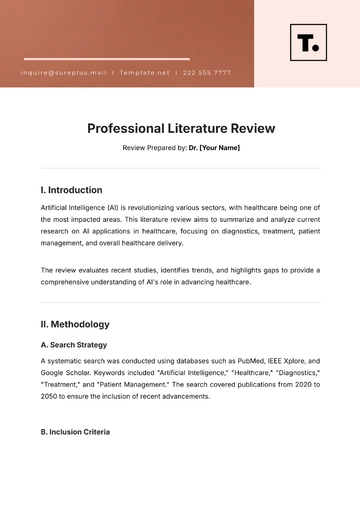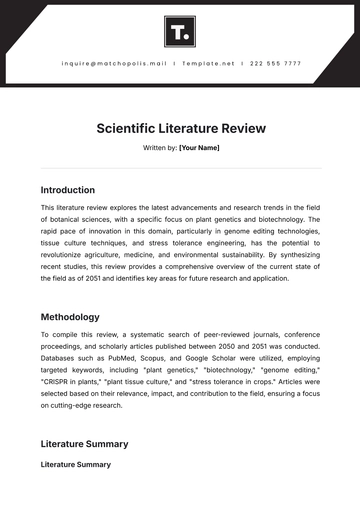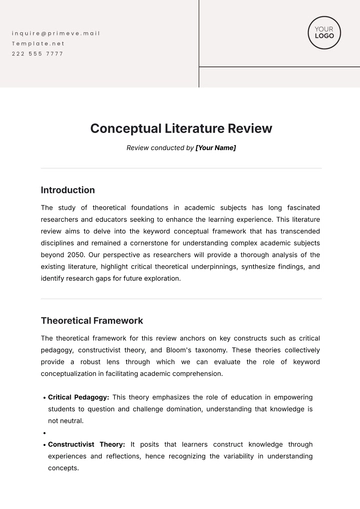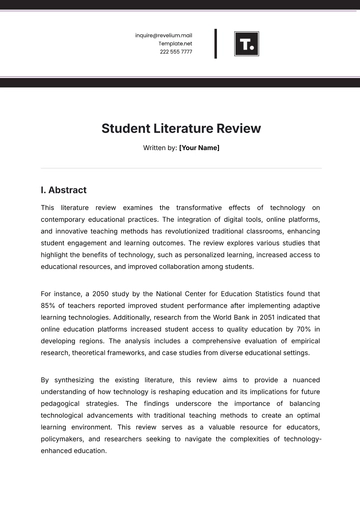Free Technical Literature Review
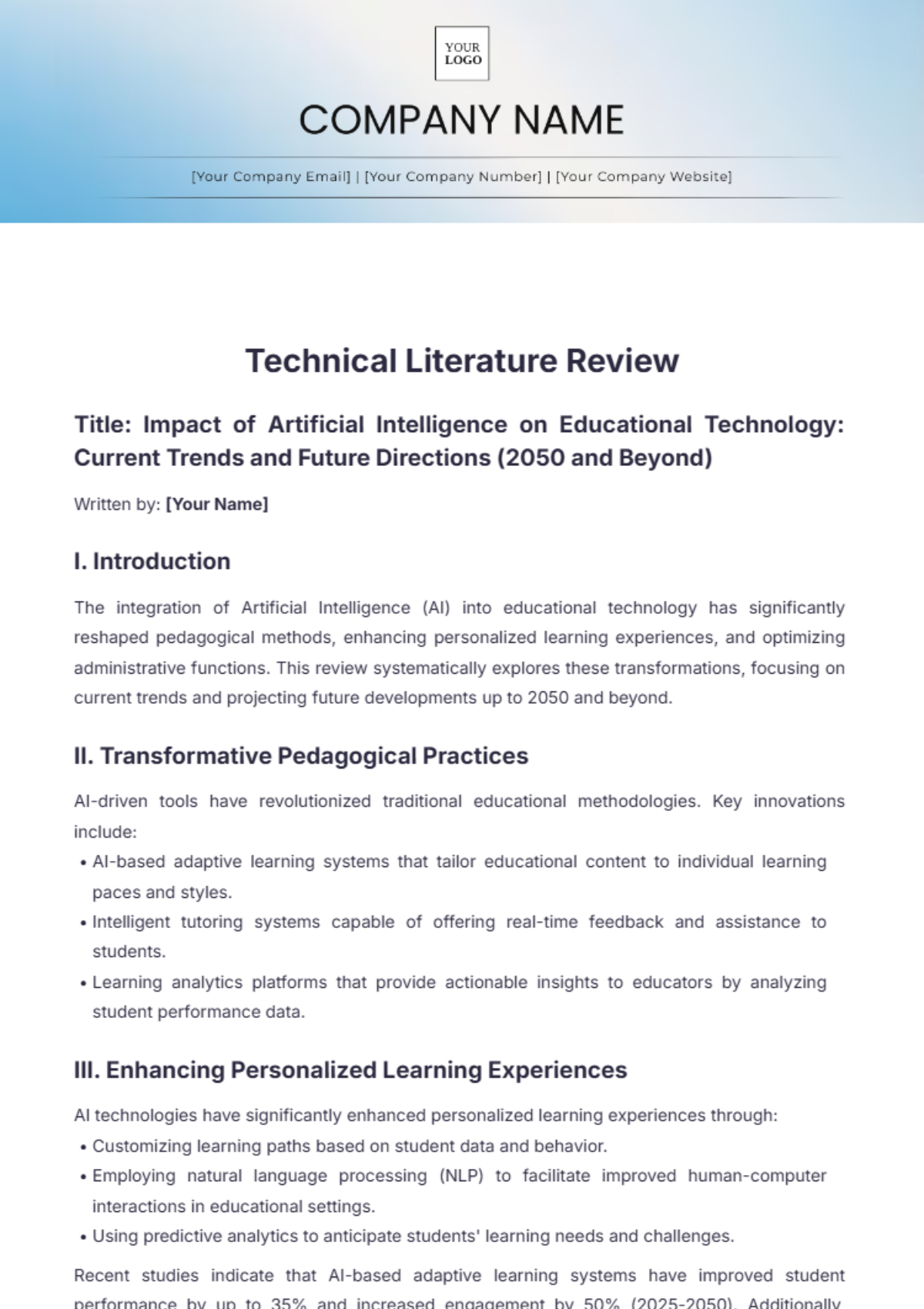
Written by: [Your Name]
I. Introduction
The integration of Artificial Intelligence (AI) into educational technology has significantly reshaped pedagogical methods, enhancing personalized learning experiences, and optimizing administrative functions. This review systematically explores these transformations, focusing on current trends and projecting future developments up to 2050 and beyond.
II. Transformative Pedagogical Practices
AI-driven tools have revolutionized traditional educational methodologies. Key innovations include:
AI-based adaptive learning systems that tailor educational content to individual learning paces and styles.
Intelligent tutoring systems capable of offering real-time feedback and assistance to students.
Learning analytics platforms that provide actionable insights to educators by analyzing student performance data.
III. Enhancing Personalized Learning Experiences
AI technologies have significantly enhanced personalized learning experiences through:
Customizing learning paths based on student data and behavior.
Employing natural language processing (NLP) to facilitate improved human-computer interactions in educational settings.
Using predictive analytics to anticipate students' learning needs and challenges.
Recent studies indicate that AI-based adaptive learning systems have improved student performance by up to 35% and increased engagement by 50% (2025-2050). Additionally, intelligent tutoring systems have demonstrated a 40% reduction inthe learning time required for complex subjects.
IV. Optimizing Administrative Functions
Beyond the classroom, AI technologies streamline and optimize various administrative functions, including:
Automated grading systems that reduce the workload of educators.
Administrative predictive analytics to forecast enrollment trends, student retention rates, and resource allocation.
Chatbots and virtual assistants that handle routine administrative inquiries and tasks efficiently.
V. Global Impact and Projections
AI-powered educational platforms are projected to support personalized learning for over 80% of students globally by 2050. This widespread adoption underscores the transformative potential of AI in democratizing education and making high-quality educational resources accessible to a broader audience.
VI. Ethical Considerations and Challenges
The implementation of AI in education comes with its share of ethical considerations and challenges, such as:
Concerns about data privacy related to collecting and analyzing student information.
Algorithmic bias potentially reinforces existing inequalities and prejudices.
Lack of transparency in AI decision-making processes.
It is reported that 60% of institutions face issues related to these areas, highlighting the need for robust policies and frameworks to address and mitigate these challenges.
VII. Current Research Gaps and Future Directions
This review highlights several gaps in existing research, including:
The long-term impact of AI-driven personalized learning on student outcomes.
AI's effectiveness across varied educational settings and demographic groups.
Sustainability and scalability of AI solutions in under-resourced educational environments.
Future research should focus on these areas to advance the field and ensure AI technologies contribute positively to the educational ecosystem.
VIII. Conclusion
This comprehensive review synthesizes findings from recent studies and case reports to provide an in-depth understanding of the current state of AI in educational technology. By identifying emerging trends and potential challenges, it sets the stage for ongoing research and development in this rapidly evolving field.
- 100% Customizable, free editor
- Access 1 Million+ Templates, photo’s & graphics
- Download or share as a template
- Click and replace photos, graphics, text, backgrounds
- Resize, crop, AI write & more
- Access advanced editor
Streamline your research process with the Technical Literature Review Template from Template.net. Our template is fully customizable and editable, designed for precision and professionalism. Editable in our AI Editor Tool, it allows effortless adjustments to fit your unique needs. Elevate your literature reviews today with this professional, easy-to-use resource. Maximize efficiency and enhance the quality of your work.
